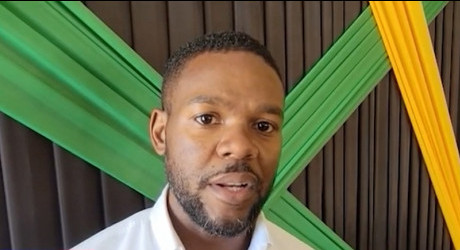.png)
00:00
00:00
00:00
Child rights attorney Nastassia Robinson and Rosalee Gage-Grey, Chief Executive Officer of the CPFSA
UNICEF is reiterating its call for the Government to ban the use of corporal punishment in all settings and to promote non-violent forms of discipline.
At least two children have died in the last few weeks after severe beatings.
UNICEF is recommending that the Government go the route of passing legislation to make corporal punishment illegal.
In a statement on Wednesday, UNICEF said available data speak clearly to the fact that corporal punishment is prevalent throughout Jamaica.
The agency said findings from the Multiple Indicator Cluster Survey (MICS) 2011 indicate that seven out of 10 Jamaican children under age 15 are subjected to violent punishment at home.
Violent punishment includes psychological aggression, such as shouting, and physical punishment.
UNICEF says the data also show that children between the ages of two and four are more violently punished than older children.
Children in the poorest families are almost five times as likely as those in the wealthiest to suffer severe physical punishment.
More boys are violently punished than girls, and more children in the Kingston Metropolitan Area are violently punished than children in rural areas.
Pulling data from the Jamaica Survey of Living Conditions 2018, UNICEF pointed out that 67 per cent of children ages zero to eight are being slapped, and 18 per cent beaten with an implement.
UNICEF Jamaica Representative Mariko Kagoshima said discipline is necessary for children, but it should never be a death sentence.
On Tuesday, Prime Minister Andrew Holness told the House of Representatives that he is to receive a report in a few weeks from the National Commission on Violence Prevention, on the proposed ban on corporal punishment in Jamaica.
Long overdue
Child rights attorney Nastassia Robinson has said specific legislation to ban corporal punishment in Jamaica is long overdue.
Miss Robinson said making the action illegal will remove misinterpretation of whether it is a form of abuse.
We understand what child abuse is...but we cant' seem to understand the difference between corporal punishment and child abuse. There is a line there that is blurred in disciplining children and the only way to actually remove that line is the hard legislation that specifically bans corporal punishment.
But Miss Robinson said imprisonment of parents should not be the first resort, once the ban on corporal punishment takes effect.
Speaking Wednesday on the Morning Agenda on Power 106, she argued that while parents should be held accountable, "it is perhaps not the most ideal situation to lock parents up in some of these instances," but acknowledged it may be necessary in other cases to protect the child.
She suggested a creative way needs to be found to enforce the legislation while still maintaining the parent's ability to be actively involved in the child's life, insisting "we have to equip that parent with the tools to be able to raise their children without resorting to corporal punishment."
The Child Protection and Family Services Agency (CPFSA) said it has started educating parents on alternative methods of disciplining their children.
Rosalee Gage-Grey, Chief Executive Officer of the CPFSA, said some parents act out of anger, which turns into corporal punishment.
comments powered by Disqus








 All feeds
All feeds







